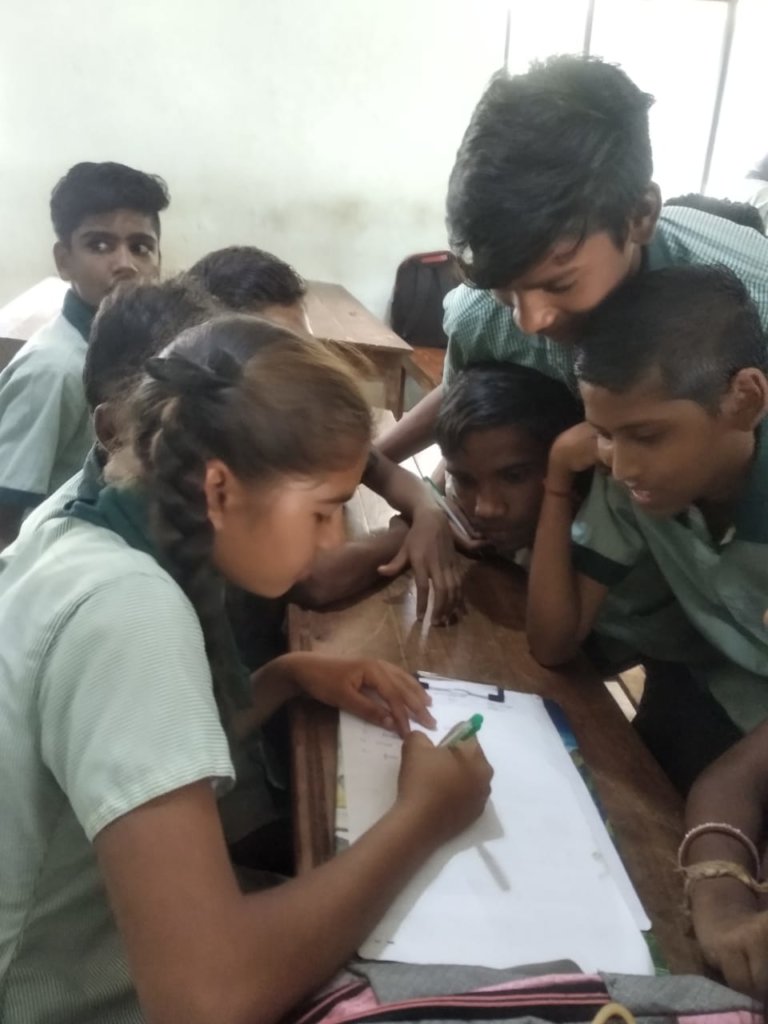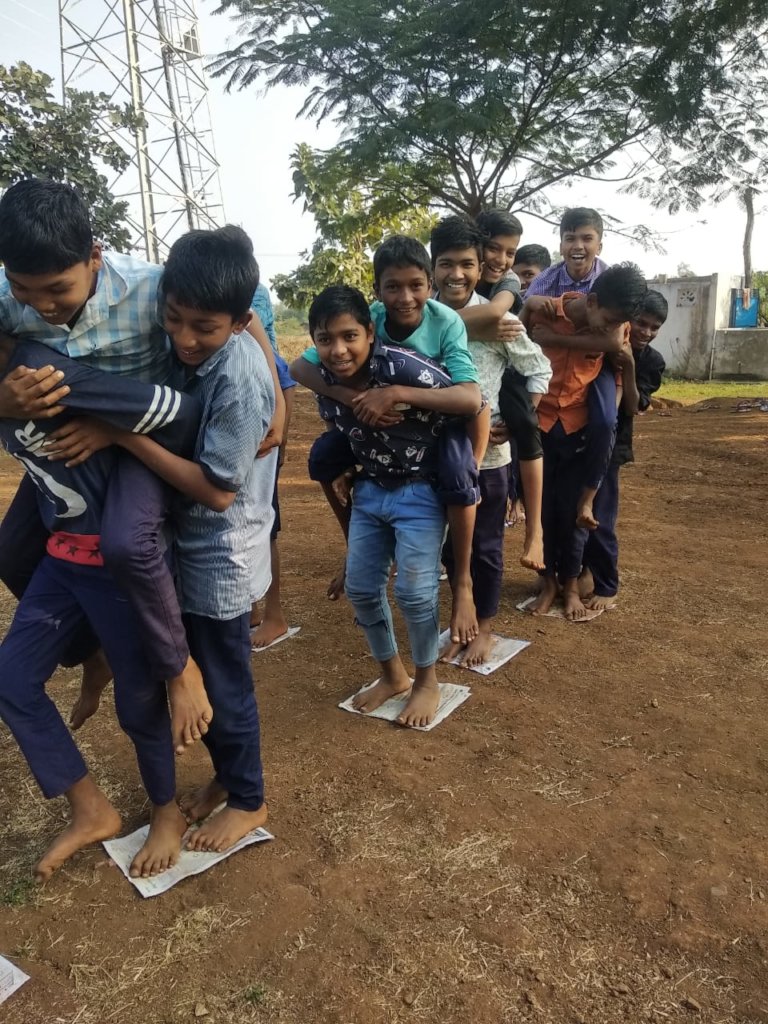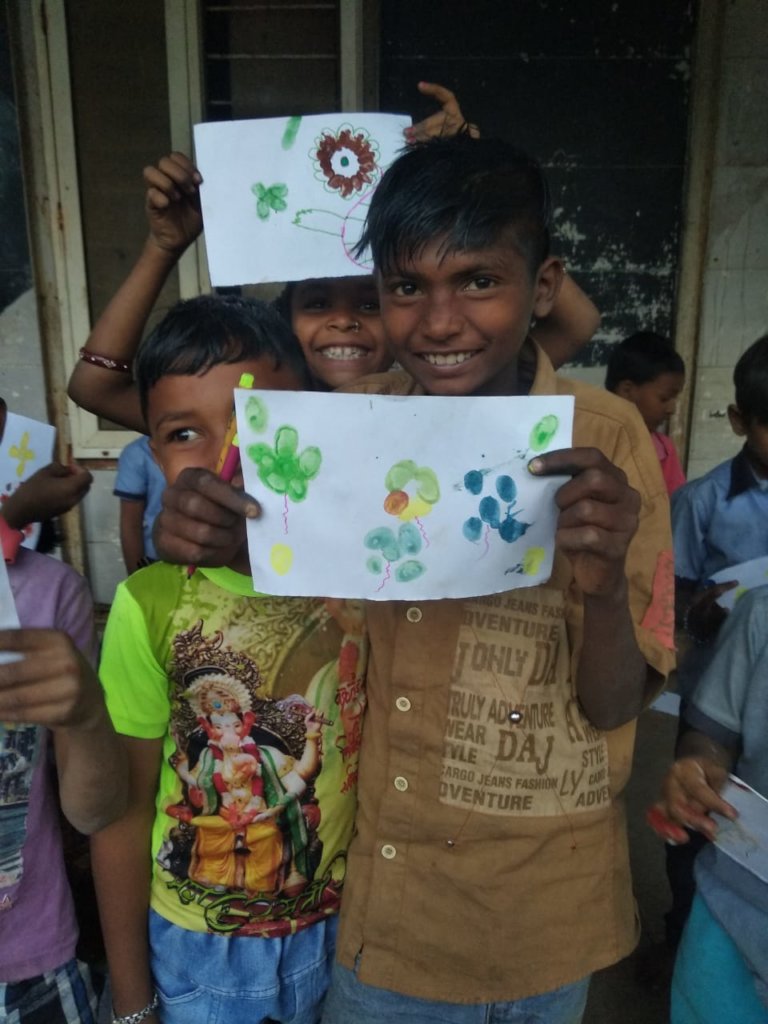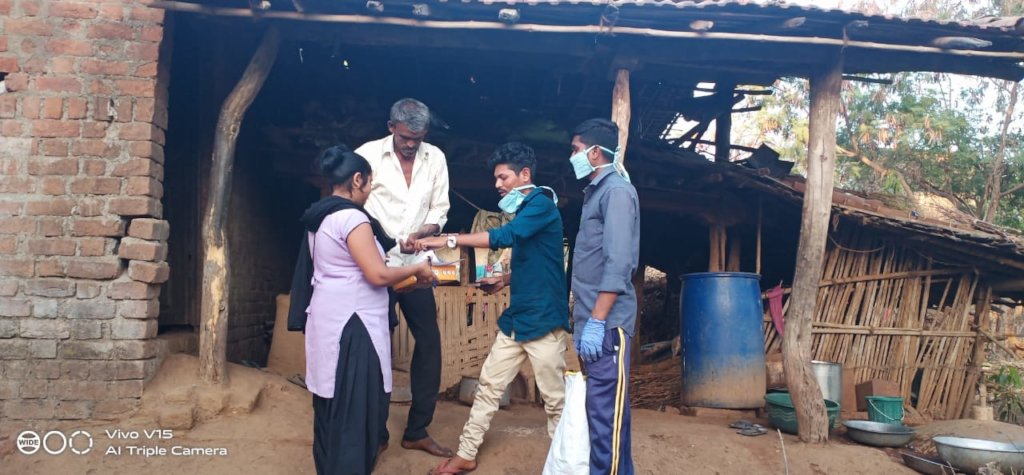By Isha Sheth | Project Coordinator
Work in Aashramshalas:
We have started working with 8 Aashramshalas and 2 primary schools.
Adolescent Girls and Boys program:
We are working with 748 girls and 565 boys of grade 5th-9th and 11th. We visit these Aashramshalas twice a month and spend the full day there. We divide children in smaller groups viz. 5th and 6th grade, 7th and 8th grade and further divide them in gender specific groups. For high school children, we work separately with 9th and 11th grade children in their gender specific groups.
In past four months children learnt about physical, mental, emotional changes during adolescence, about menstruation, about gender and girls and boys are equal. They also learnt life skills like problem solving, creativity, communication and decision making.
Balmelas:
Balmelas have been an important entry point strategy for us. Whenever we go to a new area, we conduct Balmelas with children. It could be on different themes for different age groups of children. But what is common is that it will be activity based where each and every child is actively engaged and it is a lot of fun.
So when we start our work in the Aashramshalas, we organize Balmelas with all the children in their age appropriate groups on a variety of themes such as creativity, communication, cooperative games with lots of fun! In past four months we organized one balmela in primary school of a remote village call ‘Kanbudi’ with 105 children.
Wenlido:
Wenlido is a feminist self-defence training for personal safety. It is done with only women and girls by women. We have three different age appropriate modules for different age groups of girls from 8 years to 19 years.
We organized two Wenlido trainings with 36 girls of Aashramshalas.
We recognize that these trainings are very important to these girls as they often face abuse in their homes, villages and even schools.
Focused Group Discussions:
During the month of March as the academic year was coming to an end we organized focused group discussions with children of Aashramshalas to get feedback on our program.
Children shared that they really look forward to us going to the school and teaching them new activities. Some of them shared that when they went home they even taught all the games to their friends and siblings in their villages.
Girls share that now they understand about menstruation better, and they know to wash and dry their menstrual piece in the sunlight. They shared that now they understand in what situations they need to be aware, take action and ask for help.
One girl of standard 9th shares, “Once these people from Shaishav came. I was thinking what new activity would they come with? They shared a puzzle in front of us- ‘Once a boy was going with his father to school. They meet with an accident, the father dies and boy is seriously injured and taken to the hospital. They call a super specialist surgeon. When the surgeon sees the patient and says, ‘this is my son!’ How is that?’ This was the puzzle, I got very confused, I thought maybe he is his uncle or grandfather of something! Then, one of my classmate shared that the surgeon was mother of the child. I was awed by this. I learnt that women could be doctors too. Now my dream is to become a doctor and help villagers.”
Both girls and boys shared that now they are helping out each other more than they were before and are able to talk to each other. They both shared that now they are getting more help from other gender.
Girls and boys of one school shared that as we involve them both in our activities together and they even sit together. One of their teachers noticed this and started doing the same. Now many teachers are following the practice.
Work in villages:
Currently we are working in 5 villages of Dediapada block with 299 children (including 161 girls and 138 boys) of age 5 to 14. Some of these are small and some are big villages. We also work in one hamlet. These villages are Sejpur, Samarpada, Pomlapada, Thapavi and Samarpada Navi Vasahat. Since all these children go to schools, we do our activities in the evening after the schools for about two hours. We visit each village twice a week.
We did both Educational and Developmental activities. Educational activities such as maths, scientific experiments, geography of the state and the country were covered using innovative activities and Teaching Learning Materials. We also did several Developmental activities which includes cooperative games which imbibe a sense of community, cooperation and fun, songs, stories, paper craft, drawing etc.
Children shared that they really look forward to the activities, eagerly waiting what new things they are going to do as they wait for the staff members to come. In these villages, children and parents are experiencing such activities for the first time. So they really appreciate it a lot.
We also planned to do Focus Group Discussions to get their feedback at the end of the March, however because of COVID-19 we had to stop our work and could not do it as per our plans.
Baseline Survey:
We conducted a Baseline survey of 5 villages mentioned above where we are working to understand more about their Socio-economic and situation and education related information of all the children from 3 to 18 years. We have conducted surveys of 641 households in 5 villages. Analysis of this survey is still under process. We are also trying to identify child labours, non-school going children and children who are orphaned or have single parents. We are also identifying the children with disabilities. We are happy to see that so far we have not encountered any cases of child marriages.
Parents Meeting:
We conducted a parents’ meeting in Thapavi villages with 17 parents. They shared that they are very happy that we are conducting activities in their village with their children as nobody has ever done work with these children before this. They told us that children look forward to activities and also share what they learnt when they go home. They also expressed that they would like it if we started something like a tuition class for their children in their areas.
Meeting with the Panchayat and Visit of Mr. Ankush of UNICEF:
Mr. Ankush , a Communication specialist from UNICEF visited Aaranyak project on 13th February, 2020. He wanted to understand more about our work and concept. He also expressed his interest in meeting with Sarpanch and Panchayat members of our villages to discuss how we could help in creating Child Friendly Panchayats with support of UNICEF. He met with 8 members of Samarpada group Panchayat and their Sarpanch. In the meeting he shared about child rights with the members and how UNICEF is looking forward to creating Child Friendly Panchayats. The panchayat members also expressed their interest in trying out the same.
Holi Celebration:
Holi is the most celebrated festival of this tribe. They celebrate it for 5 days. Just before Holi we also celebrated it in our village points. Children really enjoyed it! They especially enjoyed playing with the facilitators. During the actual festival they use a lot of chemical colour which is very bad for skin and it also contaminates water. We took this opportunity to make them aware about this and requested to use natural and traditional colour of ‘Palash Flower.’
Covid-19: Pandemic, Lockdown and Our Work:
Since Mid-March our work in Aashramshalas and villages stopped because government guideline to not gather children due to COVID-9 pandemic. And soon it was followed by the lockdown of the country.
Thankfully in the district there were only 13 cases and out of that 12 people have recovered and one is under treatment.
The biggest challenge that the tribal people faced was not having enough food. We distributed ration kits to 267 families in 9 villages. We were able to generate financial and material support locally. Government is now providing support to families that have ration cards. However, there are around 64 families who don’t have the ration cards and are still without support. We are trying to gather support to help them.
Mental Health of children is one of the biggest side effect of this lockdown. Our facilitators are calling all the children from the villages where we work and getting their updates of their wellbeing. They are also finding out if their family is facing any challenges or whether children are facing any domestic violence. During the calls facilitators are also explaining the children and their family members about how to stay safe, what to do and what not to do. Most of the children are doing fine, however when some are not the staff members paid visit to their house as they live in the same village while maintaining social distancing.
We are organizing calls with the team every day and taking the update of how they are doing. We are also taking this opportunity to learn and discover more activities, songs, stories and dances. We are also reading books to strengthen our concepts of education. We are also making detailed plans for the next year especially in view to the pandemic and the lockdown. We are currently planning to work on their mental health and how to help them through self-designed learning.
Project reports on GlobalGiving are posted directly to globalgiving.org by Project Leaders as they are completed, generally every 3-4 months. To protect the integrity of these documents, GlobalGiving does not alter them; therefore you may find some language or formatting issues.
If you donate to this project or have donated to this project, you can receive an email when this project posts a report. You can also subscribe for reports without donating.
Support this important cause by creating a personalized fundraising page.
Start a Fundraiser


